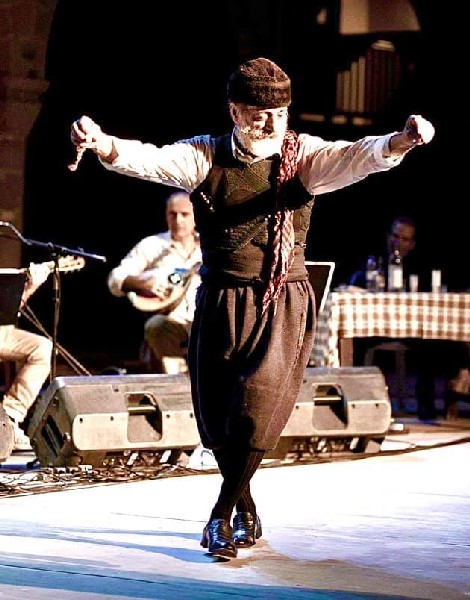The Greek Ministry of Culture and Sports has announced the inclusion of Zeibekiko on its list of Intangible Cultural Heritage. Alongside the emblematic dance, the three-stringed and four-string bouzouki, the tzouras and the baglamas, musical instruments that are most closely associated with the Greek folk-dance tradition, have also been added.
Zeibekiko is a living element of Greek cultural identity, celebrated throughout Greece and in the communities of the Greek diaspora. Originally a dance for two armed men facing each other – akin to a war dance – it takes its name from the Zeybeks, an irregular militia from the Aegean Region of the Ottoman empire that was active from the late 17th to the early 20th centuries. It later evolved into an improvised dance with no set steps, traditionally for a single male, but, in recent generations, increasingly popular for women.

© Hellenic Ministry of Culture and Sports

© Hellenic Ministry of Culture and Sports
Following the population exchange between Greece and Turkey in 1922, the dance and its associated folk music, Laiko, became hugely popular in mainland Greece, notably in the underground nightclubs of port cities, Piraeus, Patras, Thessaloniki, Volos, and elsewhere.
Danced to the characteristic sounds of the long-necked bouzouki and its smaller cousins, the tzouras and baglamas, Zeibekiko soon became synonymous with the urban poor and working classes, a choreographic embodiment of defiance. The shapes and circular movements are an outward expression of the feelings of the dancer, who oftentimes performs in a restricted space while holding a glass and a cigarette.
The accompanying Laiko music, with its stylistic origins in Byzantine music of Late Antiquity and performed with the bouzouki and related stringed instruments, was likewise brought to Greece in the early 1900s by refugees from Anatolia. Referred to as “urban folk music,” Laiko took its popular form in the period from the 1950s to the 1980s.

© Hellenic Ministry of Culture and Sports
In a statement, Culture Minister Lina Mendoni said: “The Zeibekiko dance, as well as the bouzouki and other instruments of the same family, are identified as being an important part of the folk tradition of Greece. They have played a leading role in the formation of Greek folk music in the 20th century and are undoubtedly the most recognizable Greek musical instruments abroad. Throughout Greece and the communities of the diaspora, the movement of the Zeibekiko and the sound of the bouzouki are a pure expression of the Greek repertoire and are based on a long tradition of intangible cultural heritage.”
Deeply rooted in the cultural memory of Greek society of the last century, Zeibekiko, a blend of traditional and urban folk traditions, continues to be a source of inspiration for contemporary artists.
“The recent establishment of a Traditional Music Section by the Ministry of Culture and Sports in municipal and private music schools, as well as the current inclusion of Zeibekiko and bouzouki in the National Inventory of Intangible Cultural Heritage contribute decisively to the study and preservation of these important elements that have determined the Greek sound, both within the country and abroad,” Mendoni concluded.










